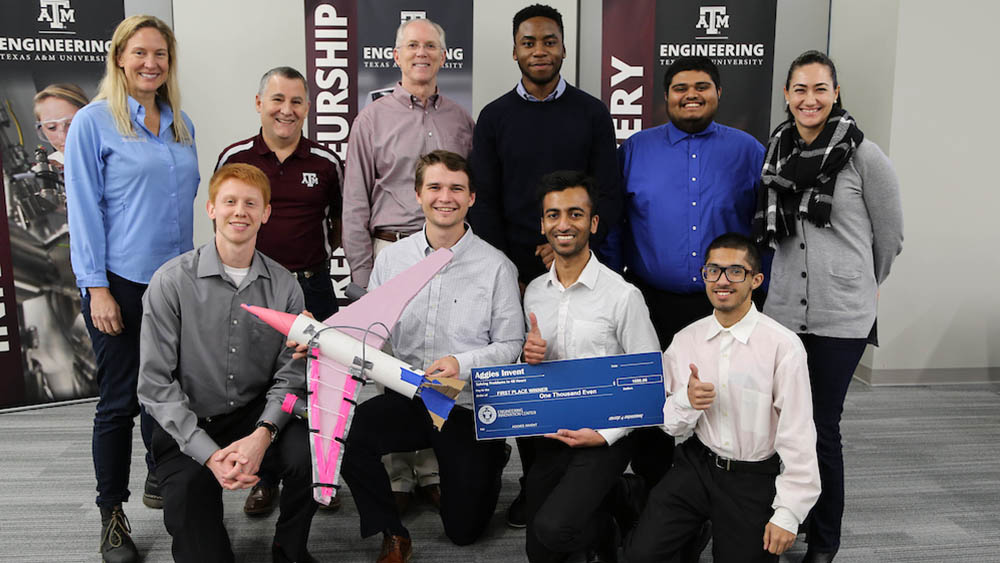
Five Invent for the Planet teams are one step closer to becoming world champions. The Engineering Entrepreneurship Program (EEP) announced the top five winners after judges around the world deliberated.
The winning teams are Team Hail No from Texas A&M University, Team Haildom from Aristotle University of Thessaloniki, Team SuperSocial from Swansea University, Team SIPS from James Madison University and Team Tupa, which was a collaborative effort between Universidade Federal do Rio de Janeiro and Centro Federal de Educação Tecnológica Celso Suckow da Fonseca.
These teams will travel to College Station for a showcase and final competition April 23-24. The first-place team will win $3,000, second place will win $2,000 and third place will win $1,000. All other first place teams from participating universities are invited to attend the showcase and compete in a people’s choice category.
Invent for the Planet is a global intensive design competition hosted by the College of Engineering at Texas A&M. In its second year the competition doubled in size, welcoming teams from 26 other universities in 16 countries. For 48 hours last month, the sun never set on innovation as more than 600 students collaborated virtually to solve some of the biggest challenges facing our planet. Using Microsoft Teams, students were able to share ideas and ask experts questions as they created prototypes.
Being a part of this experience was incredibly inspiring. Invent for the Planet evokes the spirit of collaboration and selfless service that Aggies are known for, and in this case, the results could be far-reaching.
There were 16 challenges in all, ranging from finding ways to provide access to clean water to designing methods for personalized learning. Need statements were provided by industry partners with USAID, the National Academy of Engineering and Airbus, as well as from Texas A&M.
“Being a part of this experience was incredibly inspiring,” said Rodney Boehm, director of engineering entrepreneurship. “Invent for the Planet evokes the spirit of collaboration and selfless service that Aggies are known for, and in this case, the results could be far-reaching.”
Last year, the first-place team from Texas A&M collaborated with the second-place team from Myanmar to create an inexpensive light source that would allow children to study after dark in developing countries. Their idea is now close to being implemented in Myanmar.
Here’s a run-down of the top five teams: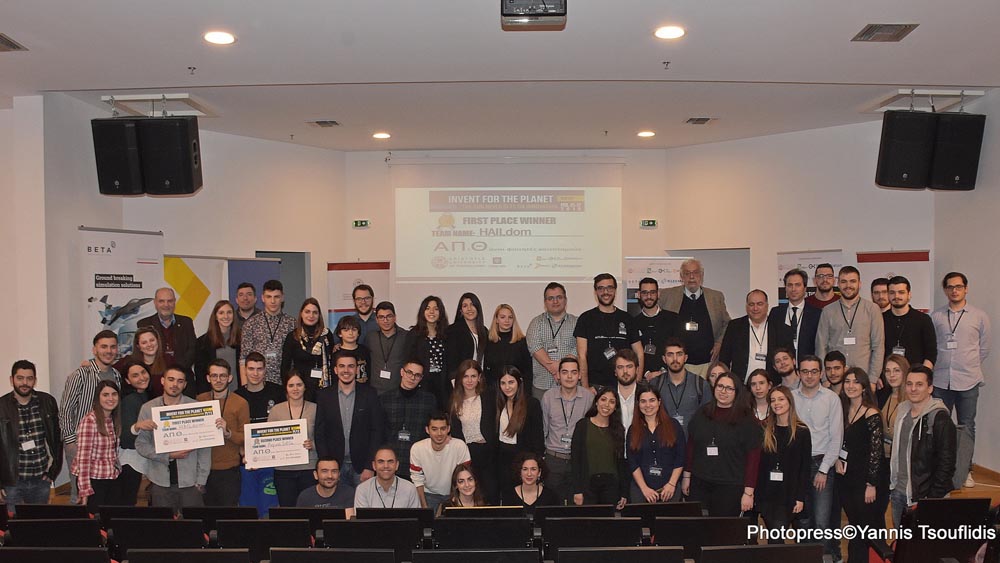
Team Haildom
Aristotle University of Thessaloniki, Greece
This team designed a two-part system to protect airplane wings from hail damage, using a C-shaped motorized vehicle that would quickly secure a nylon blanket to the wings as a hail storm approaches.
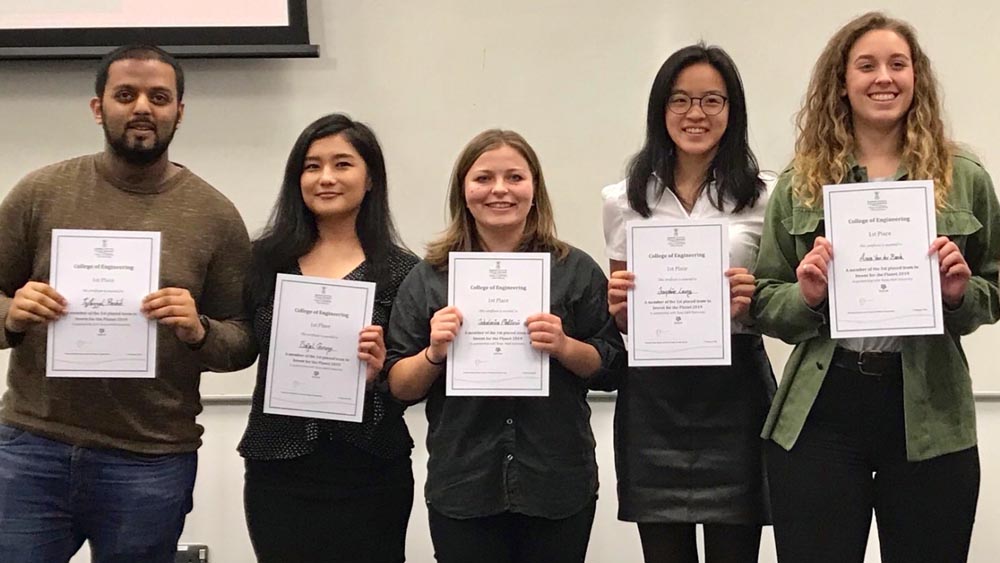
Team SuperSocial
Swansea University, Wales
This team created an app that promotes in-person social engagement and activities to tackle loneliness.
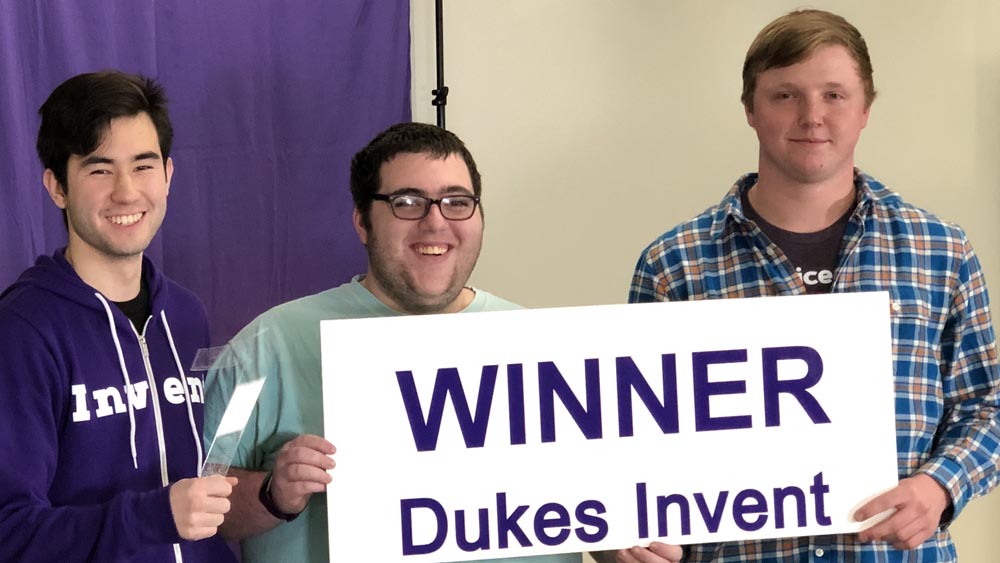
Team SIPS
James Madison University, Virginia
This team developed a different solution for hail damage to airplane wings, using compressible foam that would quickly inflate and cover the wings.
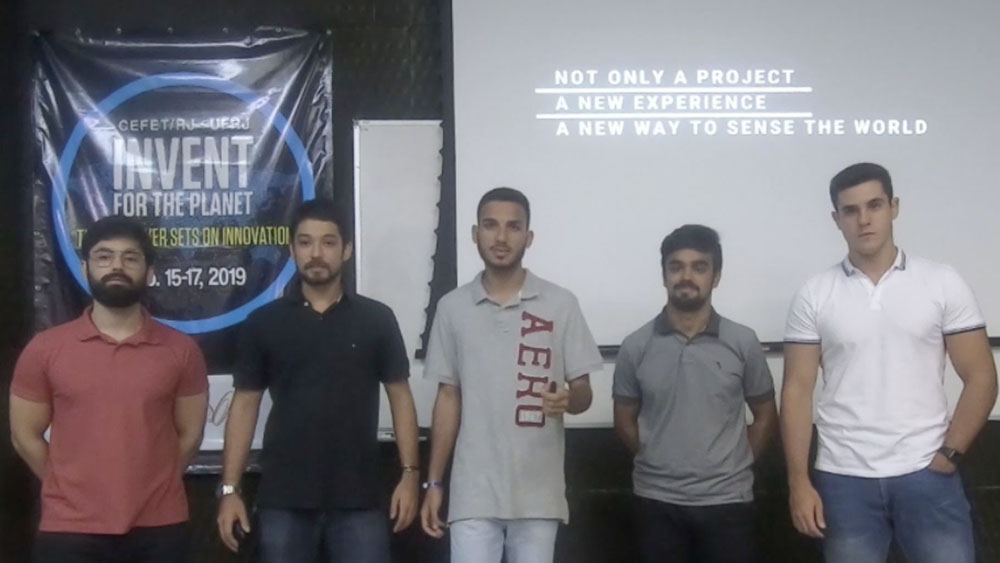
Team Tupa
Universidade Federal do Rio de Janeiro and Centro Federal de Educação Tecnológica Celso Suckow da Fonseca, Brazil
Team Tupa developed a two-part sensor system that would allow people with visual impairments or blindness to find their way without using a cane or guide dog. This cost-effective solution includes a handheld wand and low-profile head sensors that would vibrate when the user approaches an obstacle.
Team Hail No
Texas A&M University
Team Hail No also developed a solution for hail damage to airplane wings. Their prototype works similar to an airbag that would be inflated and installed using nylon straps.